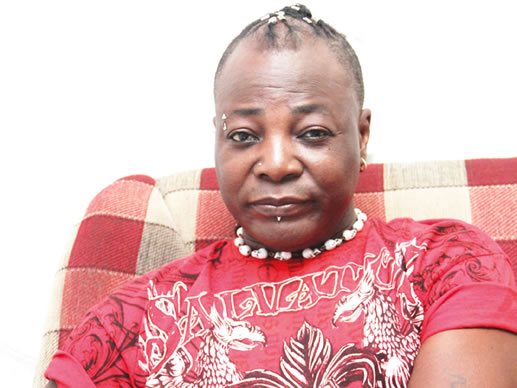Charles Oputa, the veteran Nigerian entertainer and activist widely recognized as Charly Boy, has responded with nonchalance to the recent renaming of a Lagos bus stop that had unofficially borne his name. In an interview on Channel Television’s Morning Briefing, Charly Boy downplayed the significance of the change, emphasizing his indifference to the matter. He stated that the renaming doesn’t concern him, suggesting that anyone who has contributed meaningfully to their community deserves recognition. Instead of dwelling on the bus stop’s name, Charly Boy urged Nigerians to prioritize more pressing national issues, particularly the need for electoral reforms and credible elections in 2024. He stressed the importance of ensuring that votes count in the upcoming elections, highlighting it as the primary focus for citizens.
The bus stop, located in Bariga Local Council Development Area, had been informally referred to as “Charly Boy Bus Stop” by some residents in acknowledgement of his longstanding activism and contributions to the community. However, outgoing council chairman Kolade Alabi officially renamed it “Badoo Bus Stop” on Saturday, sparking a wave of mixed reactions. The change has been met with both criticism and support, with some questioning the motives behind the renaming and the lack of transparency in the process, while others viewed it as a reflection of the evolving nature of community recognition and local governance.
Charly Boy, however, dismissed any suggestion that he felt slighted by the decision. He reiterated that a true legacy transcends physical structures and symbolic gestures, suggesting that his impact on society goes beyond a bus stop bearing his name. His focus remains on advocating for meaningful societal change and ensuring that the democratic process in Nigeria is strengthened, particularly through electoral reforms that guarantee the sanctity of the ballot box. He sees this as far more crucial than any symbolic recognition.
This episode highlights the often-complex relationship between public figures, community recognition, and the shifting priorities of local governance. While the renaming of the bus stop may seem trivial to some, it underscores the importance of transparent decision-making processes within local authorities and the need for ongoing dialogue between community leaders and residents. It also raises questions about the durability of symbolic honors and the evolving ways in which communities choose to recognize contributions.
Charly Boy’s response, however, provides a deeper reflection on the nature of legacy and the importance of focusing on substantive issues that affect the lives of all citizens. His call for electoral reforms and credible elections resonates deeply within a Nigerian political landscape often marred by controversies and allegations of irregularities. By prioritizing these issues, he underscores the need for systemic change and the importance of holding elected officials accountable. He implicitly suggests that the energy spent debating the renaming of a bus stop could be better channeled towards advocating for a more just and equitable society.
Ultimately, Charly Boy’s reaction transcends the immediate issue of the bus stop renaming. He uses the incident as a springboard to address broader concerns about the state of Nigerian democracy and the importance of citizen engagement in demanding credible elections. His indifference to the name change serves as a powerful statement about his priorities and his unwavering commitment to advocating for a better Nigeria. It showcases a seasoned activist who understands the bigger picture and chooses to focus his energies on the issues that truly matter in shaping a more democratic and prosperous future for the nation.














